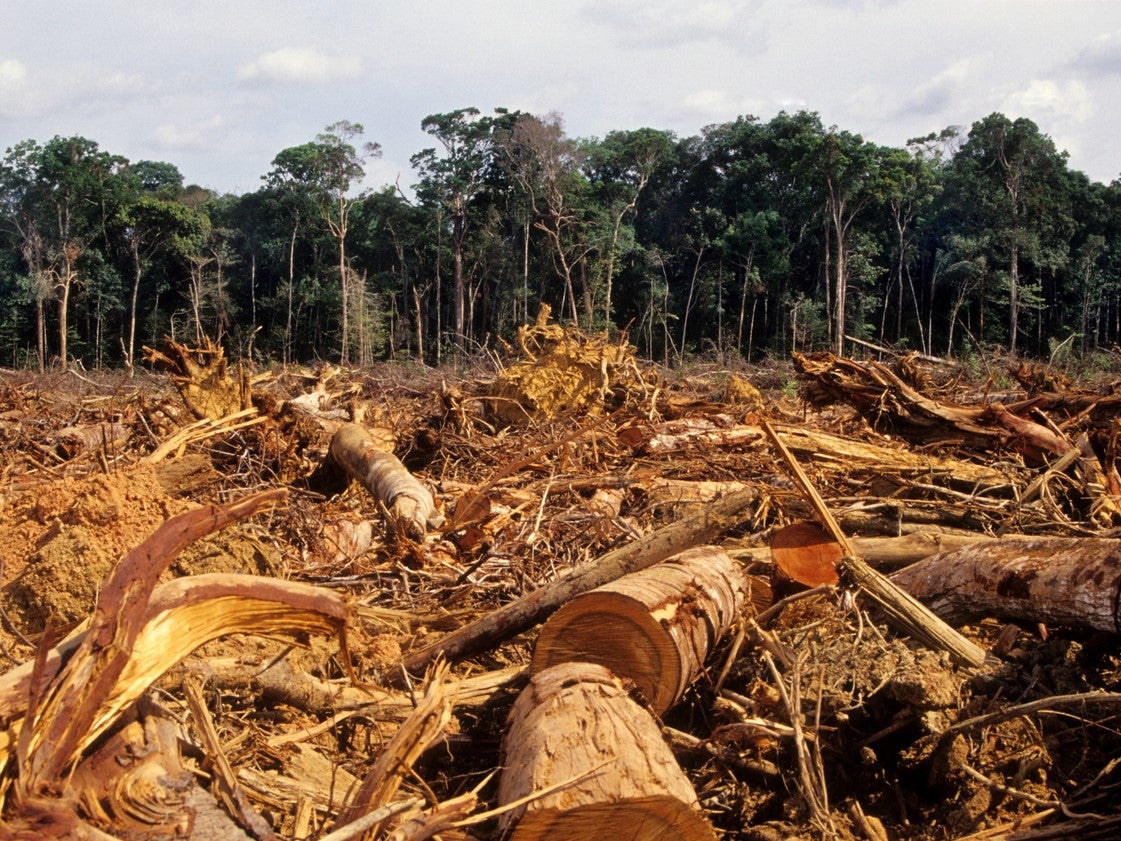Indigenous boy stabbed to death in Amazon amid wave of rainforest racism
Local police say killing not driven by racism but indigenous activists demand answers

Your support helps us to tell the story
From reproductive rights to climate change to Big Tech, The Independent is on the ground when the story is developing. Whether it's investigating the financials of Elon Musk's pro-Trump PAC or producing our latest documentary, 'The A Word', which shines a light on the American women fighting for reproductive rights, we know how important it is to parse out the facts from the messaging.
At such a critical moment in US history, we need reporters on the ground. Your donation allows us to keep sending journalists to speak to both sides of the story.
The Independent is trusted by Americans across the entire political spectrum. And unlike many other quality news outlets, we choose not to lock Americans out of our reporting and analysis with paywalls. We believe quality journalism should be available to everyone, paid for by those who can afford it.
Your support makes all the difference.An indigenous 15-year-old boy has been stabbed to death in an Amazonian reserve in Brazil, the latest in a string of murders which have heightened tensions in the region.
Erisvan Soares Guajajara’s body was found on Friday in the Amarante do Maranhão city, on the edge of an increasingly deforested indigenous reserve on the fringes of the Amazon rainforest.
The killing is the fourth in the Guajajara tribe in recent weeks and has further fuelled recrimination and racism in the febrile atmosphere surrounding indigenous people and deforestation.
The Indigenous Missionary Council (CIMI), a charity which advocates on behalf of Brazil’s indigenous population, reported Erisvan had travelled to the city with his father to buy groceries and clothes.
A second man, Roberto Silva, who is not indigenous, was also killed at the same party Erisvan was at.
The local police have handed the bodies over for autopsies and believe they may have died during a fight, the Brazilian version of the Spanish newspaper El Pais reported.
Detectives have told the local press the killings were unconnected to previous murders of indigenous people and therefore could be investigated locally, without calling in the federal police.
But this has been strongly refuted by indigenous advocates. Sonia Guajajara, the executive co-ordinator of the indigenous association ABIP and a leader in Erisvan’s tribe, said it was time the authorities took attacks on her people more seriously.
“Another brutal crime against the Guajajara people,” she tweeted. “Everyone who doesn’t like us feels allowed to kill because they know impunity rules. It’s time to say ENOUGH.”
According to figures from CIMI, murders of indigenous people rose 23 per cent in 2018. Since the far-right Jair Bolsonaro won the presidency there have been increasing reports of conflict between Brazilian loggers and the indigenous people who live in the forests they want to exploit.
Just last week, two other Guajajara leaders were killed in a drive-by shooting on a motorway in another indigenous reserve in Maranhão state. A third leader, Paulino Guajajara, was murdered in an ambush on indigenous land 100km from Amarante do Maranhão in November,
The federal agency in charge of indigenous affairs, Funai, has said it is following the latest case, according to The Guardian. However, other reports suggest Funai have confirmed the police’s account, which has ruled out any connection between Erisvan’s death and “hate crime, dispute over timber, or land”.
“There is a sequence of violence afflicting the Guajajara people and Funai should look into that,” said Gilderlan Rodrigues, CIMI’s co-ordinator in Maranhão.
Earlier this week, the federal justice minister, Sergio Moro, sent agents from Brazil’s National Public Security Force to “ensure the physical and moral integrity of indigenous peoples, Funai's officials and non-Indians” in the reserve where the drive-by shooting took place.
The measure will only last for 90 days, however, and does not include the Arariboia reserve, where Erisvan lived.
Arariboia has been hit particularly hard by deforestation and seen regular violent clashes between loggers and the Guardians of the Forest, an indigenous volunteer force which patrols protected areas of the rainforest.
According to Brazil’s Pastoral Land Commission, killings of indigenous leaders are at their highest for 11 years.
Illegal logging gangs, empowered by the rhetoric of Mr Bolsonaro, have swept into vast swathes of the Amazon, triggering increased violence with the indigenous communities who live there.
There is also evidence of growing antipathy towards the indigenous from the Brazilian public in the Amazonian regions, with racist messages calling for further violence rippling across social media and WhatsApp groups in recent weeks.
“These are common people… inciting crimes against indigenous people,” Érika Nogueira, the director of the Ascalwa indigenous association, said in The Guardian. “That is what is most worrying, it is civil society.”
Join our commenting forum
Join thought-provoking conversations, follow other Independent readers and see their replies
Comments